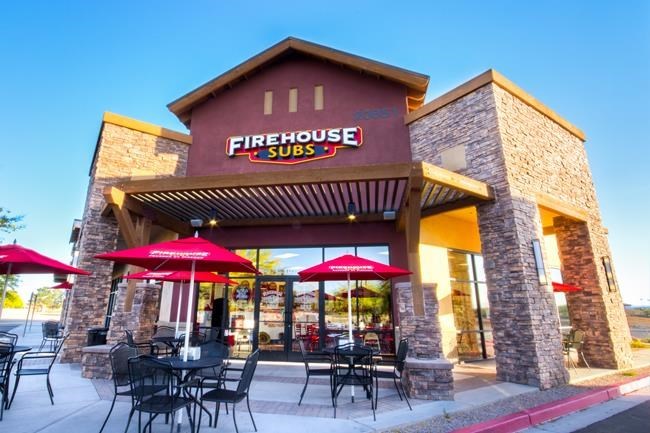José Cil first tried Firehouse Subs while criss-crossing Florida as a Walmart executive.
"I had a chance to visit basically the entire state," said Cil, now the CEO of Restaurant Brands International Inc. "I would frequently go to lunch at Firehouse Subs. It was one of the favourites of the team at Walmart."
Fast forward more than a decade to the late summer of 2021. Cil learned that the founders of Firehouse Subs — brothers and former firefighters Chris and Robin Sorensen — would consider selling if they found the right partner.
Cil knew the sandwich chain would complement Restaurant Brands' existing portfolio of Tim Hortons, Burger King and Popeyes.
It also came with substantial long-term growth potential, compelling unit economics for franchisees and a strong leadership team, he said.
"The whole thing made a lot of sense for us," Cil said. "All of it came together quite well and we finished up all the details last night."
Restaurant Brands announced Monday plans to buy Firehouse Subs for US$1 billion.
The company said the U.S.-based restaurant, which features hot specialty subs on its menu, is a strong and growing player in the quick service restaurant industry.
Firehouse Subs was founded in Jacksonville, Fla., in 1994 by the firefighter Sorensen brothers.
The sandwich chain has tripled its restaurant footprint to about 1,200 locations since 2010. In the same period, its system-wide sales have quadrupled to an estimated US$1.1 billion expected for 2021, according to Restaurant Brands.
Still, as it looks to expand, Firehouse Sub faces stiff competition from rivals like Subway and Mr. Sub, owned by Montreal-based MTY Food Group Inc.
But Don Fox, CEO of Firehouse Subs, said there are several "key differentiators" that give Firehouse Subs an edge over its competition.
"We specialize in hot subs and we use a very unique process that none of our other major rivals use," he said in an interview. "We use steam to heat the meat and cheese and it does magnificent things with the flavour profile."
The portion sizes also set the restaurant apart, he said.
"We use a quarter pound of protein on our medium subs and half a pound of protein on large subs," Fox said.
The company's locations are largely in suburban areas, which has helped Firehouse Subs recover faster from pandemic restrictions than restaurants that are more heavily concentrated in downtown urban centres and rely on office workers, he said.
Meanwhile, Restaurant Brands said Firehouse Subs benefits from a "strong family of franchisees" who own and operate 97 per cent of the brand's restaurants across 46 U.S. states, Canada and Puerto Rico.
"It's a differentiated, purpose-driven brand with great products and a great leadership team and we think we have a tremendous opportunity for growth," Cil said.
The all-cash deal is expected to close in the coming months, pending satisfaction of customary closing conditions and regulatory approvals, according to the company's filing with the U.S. Securities and Exchange Commission.
Restaurant Brands said it plans to fund the acquisition through a combination of cash on hand and debt.
Companies in this story: (TSX:QSR, TSX:QSP)
Brett Bundale, The Canadian Press

